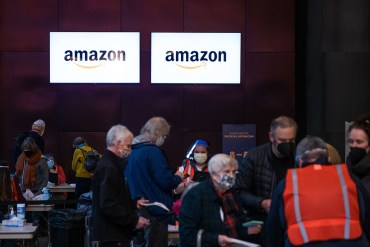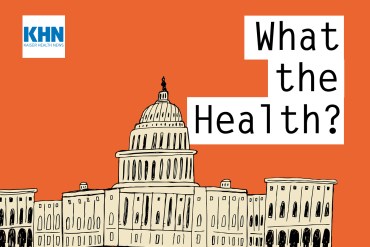Huge Gaps in Vaccine Data Make It Next to Impossible to Know Who Got the Shots
Details about race, ethnicity and occupation are often missing as data collected nationally is scattered across scores of digital systems that don’t connect. And the CDC doesn’t require vaccinators to report occupations of recipients, even though the order in which people get shots largely depends on their job.
At Colorado’s Rural Edges, Vaccines Help Assisted Living Homes Crack Open the Doors
Amid the disorganization and confusion of the vaccine distribution, smaller communities may have an advantage. In some long-term care facilities where vaccination is underway, things are looking up.
Can the US Keep Covid Variants in Check? Here’s What It Takes
The U.S. has fumbled almost every step of its public health response in its battle against covid-19. Experts say that must change if we’re going to outflank the variants emerging as the virus continues to mutate.
New Covid Cases Plunge 25% or More as Behavior Changes
End of holiday gatherings or fear of the virus may be at play – or hope for the vaccine
Encuesta: casi la mitad de los adultos ahora quiere vacunarse contra covid lo antes posible
Ya se han vacunado unas 20 millones de personas. Sin embargo, persisten las disparidades raciales, étnicas y económicas en cuanto al acceso a las vacunas.
With U.S. cases skyrocketing, demand for Gilead’s dark horse antiviral is only growing. Biden appointees propose potential legal tactics to tamp down the price for patients.
Poll: Nearly Half of American Adults Now Want the Covid Vaccine — ASAP
The number of adults seeking to get inoculated has risen since December, according to a new poll.
Por qué ni siquiera la presión presidencial podría acelerar las vacunas contra covid
Miles de estadounidenses están muriendo a causa de covid-19, pero los esfuerzos para aumentar la producción de vacunas que potencialmente salvan vidas están en un callejón sin salida.
‘We’re Not Controlling It in Our Schools’: Covid Safety Lapses Abound Across US
As President Biden calls for more support to help schools hold in-person classes, public health experts say schools can be relatively safe if they take well-known steps to prevent covid. But a KHN investigation shows many districts and states have ignored health advice or written their own questionable safety rules for schools.
Readers and Tweeters Fight Stigma and Salute Front-Line Workers
Kaiser Health News gives readers a chance to comment on a recent batch of stories.
Big Business Boosts Vaccine Effort, but It’s ‘Complex Choreography’ to Get Shots in Arms
Corporations like Starbucks, Honeywell, Microsoft, Costco and Google are lining up to help with vaccine logistics. But the problem of the moment is supply, not systems.
Why Even Presidential Pressure Might Not Get More Vaccine to Market Faster
Even invoking the widely heralded Defense Production Act to pressure drugmakers wouldn’t overcome vast obstacles.
Activistas antivacunas difunden falsas teorías de que las dosis de covid son letales
Los grupos antivacunas están desinformando y difundiendo falsas noticias, lo que amenaza con socavar la campaña de vacunación más grande en la historia de los Estados Unidos.
Estados permiten contratar profesionales de salud extranjeros por la pandemia
Colorado, Massachusetts, Nevada, Nueva Jersey y Nueva York han adaptado sus normas para que profesionales de salud con formación internacional presten sus servicios durante la pandemia.
Amid Covid Health Worker Shortage, Foreign-Trained Professionals Sit on Sidelines
Hospitals dealing with staff shortages during the current covid surge are unable to tap into one valuable resource: foreign-trained doctors, nurses and other health workers, many with experience treating infectious diseases. Colorado, Massachusetts, New Jersey, New York and Nevada are the only states to have eased credentialing requirements during the pandemic.
Anti-Vaccine Activists Peddle Theories That Covid Shots Are Deadly, Undermining Vaccination
Thousands of people died shortly after inoculation, but their deaths weren’t related to getting a vaccine.
Vaccine Ramp-Up Squeezes Covid Testing and Tracing
The ability of California health officials to multitask in a pandemic will be severely tested as they scramble to find staff for vaccination sites while maintaining testing and contact tracing.
KHN’s ‘What the Health?’: The Biden Health Agenda
President Joe Biden is wasting no time getting to work. On his first day in office, Biden signed a series of executive orders addressing the covid pandemic, promising more to come. But even with Democrats taking the barest majority in the Senate, the new president’s ambitious proposals on covid and other health issues could be in for a rough ride. Alice Miranda Ollstein of Politico, Tami Luhby of CNN and Sarah Karlin-Smith of the Pink Sheet join KHN’s Julie Rovner to discuss these issues and more. Plus, for “extra credit,” the panelists recommend their favorite health policy stories of the week they think you should read too.
De puerta en puerta para crear confianza en las vacunas contra covid en la Pequeña Habana
Varias razones sociales y económicas hacen que sea difícil para algunos residentes de Miami hacerse la prueba o recibir tratamiento, o aislarse si están enfermos de covid.
Yurts, Igloos and Pop-Up Domes: How Safe Is ‘Outside’ Restaurant Dining This Winter?
All kinds of new structures are popping up to extend the outdoor dining season. Some are safer than others.























